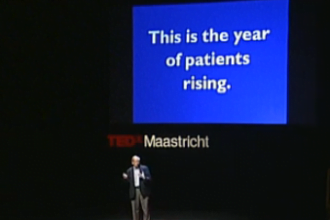There are all kinds of support available to families with critically ill members, from home health nurses and aides to nursing homes and support groups, but for those who do most care work on their own, the stress is sometimes overwhelming. And that’s where respite care comes into the picture. Unfortunately, too few families know about or take advantage of these services. As healthcare providers, then, it’s our responsibility to increase support service engagement rates whenever they can help improve patient and family health.
What Is Respite Care?
In the most general sense, respite care is any kind of supplementary support that fills a gap between the care an individual needs and what their usual care team can provide. That includes day care programs, weekend or vacation care, overnight care, and even in-home assistance. Depending on an individual’s needs, respite care is used for people of all ages and with a range of disabilities and conditions.
Respite care is also flexible; it might be a few hours spent with a trusted provider or several days or more in a residential setting. And, for the primary care team, studies show that increased use of respite care corresponds with a 50% improvement in patient health, as well as improved physical and emotional health among caregivers.
Selecting Services
As healthcare providers, one of our responsibilities is to help patients and caregivers to select appropriate supports to meet their needs. When we feel to meet that standard, caregivers have a tendency to overuse ER services in place of support care. That’s a much more expensive and far less helpful option for everyone involved.
To help patients select the right level and type of care, the first thing we need to do is learn more about those services ourselves. For example, working adults caring for aging parents might opt for day respite care programming. These programs not only allow caregivers to keep normal jobs, but also provide clients with stimulation, socialization, and structured activities along with skilled medical care.
Day care programs are generally designed for disabled adults, typically over age 21, but respite care is also available for disabled children. These children may attend school holiday respite to fill care gaps when parents might typically be working, go to therapeutic day camp during the summer, or receive in home or out of home respite when family is overwhelmed or unavailable.
For caregivers of older adults, particularly when those caregivers are a spouse or child, using respite care can be an alternative or a way to delay entry into a nursing home. These caregivers often feel guilty about putting relatives in a facility, even when it seems necessary and when assisted living can no longer meet their relative’s needs. And from the perspective of parents of disabled children, respite care should be seen as a possible alternative to residential schools and other intensive services that have a long history of abuse and may be far from home.
Service Navigation And Education
In addition to helping families understand what their respite care options are, doctors and social workers should work with families so that they feel able to navigate respite care program offerings independently. When they first seek out respite care, many patients don’t understand where these services stem from and who they can contact to receive support. And, across the board, there is a shortage of respite care – but there are always people who will try to help.
For older adults, there are typically day programs in the local community that can help with care because seniors have a widely recognized need. Caregivers only need to call local nursing homes or the visiting nurse service and they’ll be connected with service providers. Finding care for children, however, can be more difficult.
In order to find care for children and younger adults, caregivers have several options. A good place to start is with the local ARC chapter, a disability advocacy organization that can typically directly provide or refer your family for respite care. Other advocacy groups and children’s hospitals are also good sources of information, as are support groups for families of disabled individuals.
Less Common Supports
One of the hardest types of youth respite care to locate is for pediatric mental health. While support for children with developmental and physical disabilities is widely available, behavioral health respite care often has long waiting lists. This can be a real problem for families, especially if their child has become violent and it becomes dangerous to keep them at home with other children, pets, or relatives. In some cases, these children may even have to be placed in short-term therapeutic foster care until there is a residential slot or respite program available.
As healthcare providers, we need to engage in greater advocacy around pediatric mental health needs, which are on the rise, and encourage programs to provide equal support for behavioral health programs as they do for physical and developmental disability programming. And for adults who require similar behavioral health supports but may not qualify for inpatient treatment, we as providers can also offer support for and advocacy around peer respite programs for mental health.
Respite care makes a big difference in everyone’s quality of life, diffusing stress and tension, improving the standard of care for patients, and demonstrating that clients and their families don’t have to be isolated by aging or disability. By making respite care a key part of planning and support conversations, then, we can help guide patients toward the care they need – and assure them that using respite care isn’t about eschewing responsibilities. It’s simply another tool, like a wheelchair or a feeding tube, for managing health challenges responsibly.






